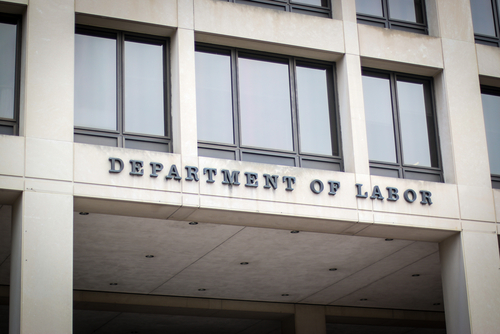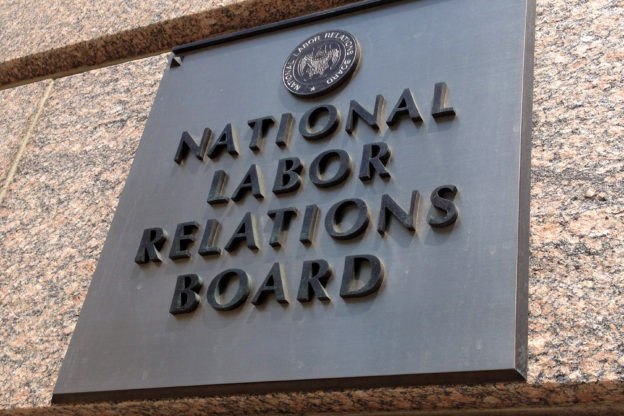
Katarina Harris
By Katarina Harris
Employers in the hospitality industry have long struggled to follow U.S. DOL guidance limiting circumstances under which they may take a “tip credit” toward their employees’ federal minimum wage. New U.S. DOL guidance eases that restriction.
DOL Opinion Letter Retracts “80/20 Rule”
In a new opinion letter released November 8, 2018, the U.S. Department of Labor (DOL) decided to eliminate the “80/20 Rule” which had previously limited employers’ ability to take a “tip credit” toward their employees’ federal minimum wage. This retraction comes as a relief to many employers in the hospitality industry, as the previous rule effectively required employers to track and account for the time their employees spent on non-tipped tasks, such as rolling silverware, filling salt-shakers, and other types of daily “side work.” Under the 80/20 Rule, an employer could not take a tip credit for non-tip-generating duties performed by a tipped employee if the amount of time spent on such duties exceeded twenty percent of the employee’s overall work. Tracking and monitoring this time was a tedious and difficult task for employers, resulting in higher risk from wage and hour lawsuits.
“Dual Job” and “Dual Task” Rules Sowed Confusion
Under the federal Fair Labor Standards Act (FLSA), employers must currently pay employees a minimum wage of $7.25 per hour. State wage and hour laws may impose different and higher minimum wage requirements. However, if an employee qualifies as a “tipped” employee under federal regulations, his or her employer may pay the employee just $2.13 per hour in cash wages and take a “tip credit” arising from the employee’s actual tips to cover the remainder of the federal minimum wage. This credit may total $5.12 per hour.
However, the FLSA distinguishes between tipped employees who perform non-tip-generating duties and those considered to have “dual jobs.” For employers, this distinction is critical to avoiding wage and hour lawsuits. If an employee is employed in both a tipped occupation (e.g., as a server), and in a non-tipped occupation (e.g., as a janitor), for the same employer, the employer may only take the tip credit for that employee’s work in the tipped occupation. For all work performed in the non-tipped occupation, the employer must pay the employee his or her federal minimum wage in cash wages.
The old 80/20 Rule took this functional distinction even further. It effectively distinguished between “dual jobs” and those involving “dual tasks.” Even if a tipped employee was not engaged in a “dual job”—for instance, if he or she worked solely as a server—the employer could still not take a tip credit for any work the employee performed which was related to, but not directed toward, producing tips—at least if the employee spent more than 20% of his or her time on such duties. This was the old 80/20 Rule.
Employers Found “80/20 Rule” Unworkable
Many employers found the old 80/20 Rule burdensome, if not completely unworkable. It effectively required employers to track tipped employees’ time spent on non-tip-generating duties. It also opened the door to wage lawsuits requiring detailed fact-finding in order to reconstruct exactly how much time, minute-by-minute, a tipped employee spent on particular tasks. Even worse, the rule did not specify which tasks were considered “related” to tip-generating occupations, as opposed to constituting distinct, non-tipped work. If a customer dropped silverware on the floor and asked a server for a new set, was the time spent rolling a new set of silverware related to tip-generating work? Would the answer be different if the server rolled extra sets of silverware at the beginning of his or her shift before the first customers arrived? Issues like these created a fertile field for litigation.
New DOL Opinion Letter Revives Old Guidance
In January 2009, the DOL issued an opinion letter which briefly rescinded the 80/20 Rule. However, the DOL retracted this rescission just two months later after a new administration came into office. The 80/20 Rule remained in force at all times thereafter.
In its November 2018 opinion letter, the DOL has now reissued its previous January 2009 guidance rescinding the 80/20 Rule. In this new letter, the DOL acknowledges that its previous guidance created some “confusion and inconsistent application” of the tip credit. The letter also quotes a federal circuit court’s observation that, under the old 80/20 Rule, “nearly every person employed in a tipped occupation could claim a cause of action against his employer if the employer did not keep perpetual surveillance or require them to maintain precise time logs accounting for every minute of their shifts.”
Given the practical difficulties caused by the 80/20 Rule, the DOL announced in its new opinion letter that the agency no longer “intend[s] to place a limitation on the amount of duties related to a tip-producing occupation that may be performed” by a tipped employee, at least if such non-tipped duties are performed “contemporaneously with the duties involving direct service to customers.” The related, but non-tip-producing, duties may also be performed “for a reasonable time immediately before or after” a tipped employee performs his or her direct-service duties without imperiling the credit. For employers, this means no more logging, tracking, and monitoring tipped employees’ daily activities.
The DOL’s new letter also acknowledges the need to provide front-end guidance to employers on which duties are entirely unrelated to tip-producing occupations, and thus not subject to the tip credit. To this end, the letter references a list of “core” and “supplemental” duties for certain tip-producing occupations provided by the Occupational Information Network (O*NET). Employers may consult this list to determinine whether certain tasks are related to tip-producing occupations, in which case they are subject to the tip credit. Conversely, employers may not take the tip credit in relation to any duties which do not appear on this list, unless they are very minimal in duration (i.e., “de minimis”)
Greater Clarity for Hospitality Employers
Although additional uncertainties regarding the tip credit may persist into future—e.g., what is a “reasonable time” immediately before or after a tip-producing activity for purposes of related duties?—the DOL’s new opinion letter provides much-needed guidance to employers in the hospitality industry. Employers need no longer track time spent on tip-producing versus “related” tasks in order to claim the tip credit. Nonetheless, hospitality employers should remain vigilant in distinguishing between “dual jobs,” and those with “dual tasks,” because any time spent in non-tipped occupations remains ineligible for the tip credit. When in doubt, employers should consult experienced employment law counsel for additional guidance.

















